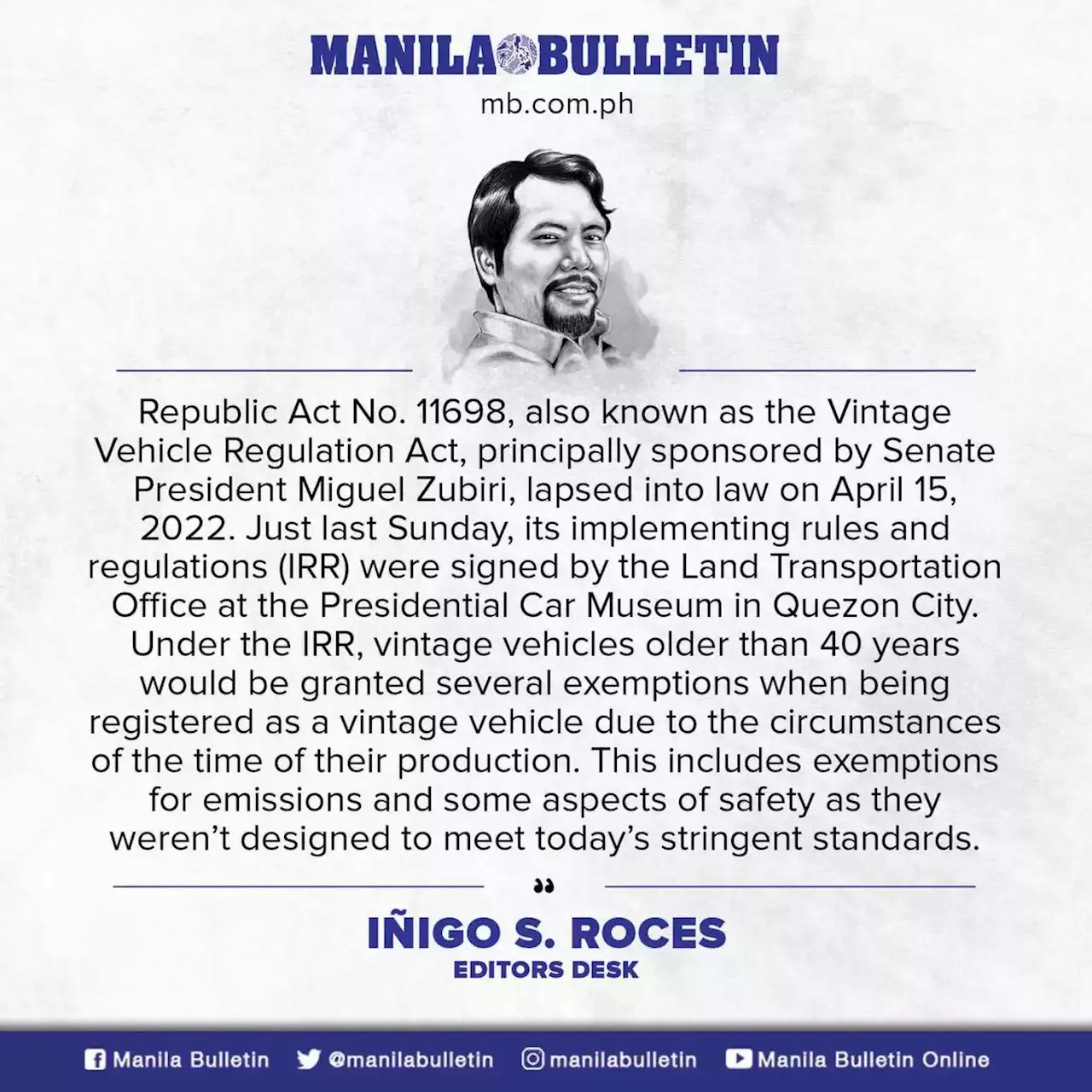Under the IRR, vintage vehicles older than 40 years would be granted several exemptions when being registered as a vintage vehicle due to the circumstances of the time of their production. This includes exemptions for emissions and some aspects of safety as they weren’t designed to meet today’s stringent standards. Because they aren’t as safe or clean as modern cars, their use is also limited to the daytime.
Before the law, anyone with a vehicle produced before 1983 would have to subject their car to the same motor vehicle inspection system and emissions tests as any modern vehicle. Naturally, vehicles manufactured before the 90s cannot meet today’s more stringent standards. In addition, the safety standards were far more lenient. Things that come standard today — like righthand side mirrors and seatbelts — were purely optional for cars built in the 50s and 60s.
With this laundry list of requirements, it’s easy to see how classic car owners can simply be tempted to turn their vehicles into garage queens. When simply kept in private, how can anyone appreciate our rich automotive history? Finally, the law also makes it easier for restorers to bring in the necessary parts to restore these vehicles, encouraging more shops that specialize in these vehicles to open up, which in turn will provide more jobs.
Business Business Latest News, Business Business Headlines
Similar News:You can also read news stories similar to this one that we have collected from other news sources.
 Vintage Vehicle Law shifts PHL car restoration industry into higher gear | BMPlusQUEZON CITY – Vintage car enthusiasts, industry stakeholders, and various government agencies gathered at the historic Presidential Car Museum at the Quezon City Memorial Circle, as the Land Transportation Office (LTO) officially signed the Implementing Rules and Regulations of RA 11698, also known as the Vintage Vehicle Law (VVL). With…
Vintage Vehicle Law shifts PHL car restoration industry into higher gear | BMPlusQUEZON CITY – Vintage car enthusiasts, industry stakeholders, and various government agencies gathered at the historic Presidential Car Museum at the Quezon City Memorial Circle, as the Land Transportation Office (LTO) officially signed the Implementing Rules and Regulations of RA 11698, also known as the Vintage Vehicle Law (VVL). With…
Read more »
